'An iconic roster': LeBron, Steph, KD headline all-star cast for Team USA's shot at Olympic glory
LeBron James is going back to the Olympics for the first time in 12 years. Steph Curry is headed to the games for the…
Opinion
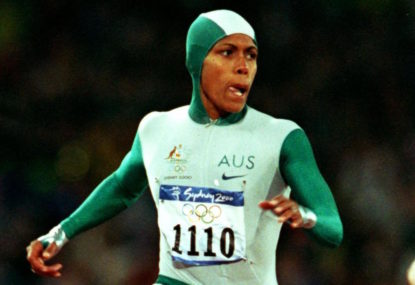
For myself, the Olympic Games is about watching the best athletes in the world on the biggest stage before a huge world television audience.
While we will all have our favourite sports to watch and performances to remember, I write here about the Olympics events and dramas that I remember most – both good and bad.
I remember the 1976 Montreal Olympics for a number of reasons, beyond that city losing a lot of money.
The two standout track and field performances were Bruce Jenner (USA) winning the decathlon with a world record points score, and Alberto Juantorena (Cuba) winning the 400m-800m double on the track with times of 44.26 and a world record 1:43.50.
I also remember Australia’s Raelene Boyle, having run the second fastest time in the quarterfinals, being disqualified in the semi-finals for two false starts, thus denying her a good chance of adding to her previous three Olympics sprint medals won in 1968 and 1972.
In the swimming, I recall Jim Montgomery becoming the first person to break the 50-second barrier for the 100m freestyle with 49.99, and Australia’s Steve Holland being beaten into third by two Americans in the 1500m freestyle in a world record time.
I also remember the public sentiment of the day with many Australians shocked at the team not winning a single gold medal.
The 1980 Moscow Olympics, which I also remember because of the US boycott over the Soviet Union’s invasion in Afghanistan, was memorable because of the immense public interest in the clash between Sebastian Coe and Steve Ovett in the 800m and 1500m – at a time when the British runners dominated such distances.
Coe would lose the 800m to Ovett, but Coe would have his revenge by winning the 1500m with Ovett coming third.
I also remember the great 100-200m races where Allan Wells (Great Britain) narrowly won the 100m and was later run down by Pietro Mennea (Italy) in the 200m.
As someone also getting into the sport of weightlifting at around 80kg, I also recall the Soviet weightlifter Yurik Vardanyan from Armenia easily winning the 82.5kg division by snatching 177.5kg and clean and jerking 222.5kg.
With Australia winning just two gold medals in 1980 (both in swimming), Prime Minister Malcolm Fraser would open the Australian Institute of Sport on January 26, 1981 and declare it is a “clear sign that we are no longer going to allow the world to pass us by”.
The rest is history, with Australia spending considerable public resources since to again become a high achiever in Olympic medal tally, achieving tenth place by 1992, sixth in 1996, fourth in 2000, fourth in 2004 and sixth in 2008, before declining to eighth in 2012 and tenth in 2016.
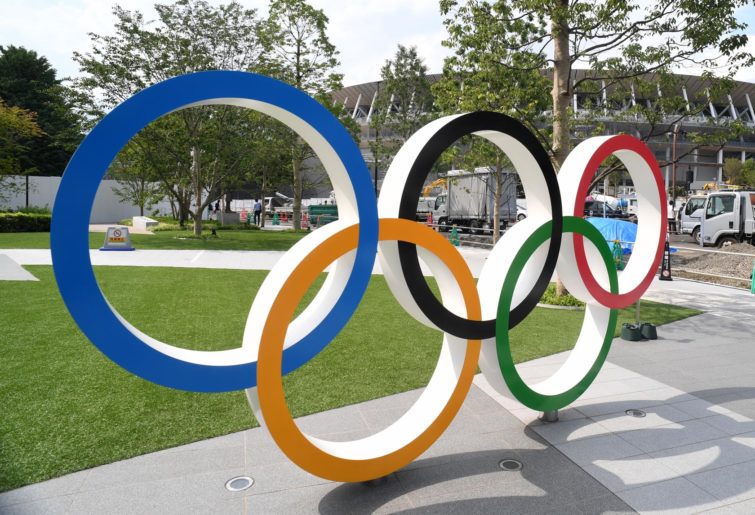
(Photo by Etsuo Hara/Getty Images)
Beyond the Soviet-led Eastern bloc retaliatory boycott of the 1984 Olympics, my primary memory of the Los Angeles games would be Carl Lewis emulating the great Jesse Owens by winning the 100m, 200m, long jump and 4x100m relay.
Having watched Lewis win the 100m and long jump at the first World Championship (Helsinki) in 1983, many sporting fans around the world were generally captivated by Lewis’ confident 1984 bid to emulate the great Jesse Owens.
The 1988 Seoul Olympics is remembered by many for the 100m clash between Lewis and Ben Johnson, perhaps the most famous clash in Olympics history in terms of public interest and controversy.
While Johnson had shattered the world record at the 1987 Rome Word Championships by running a world record 9.83 to Lewis’s 9.93, Lewis had defeated Johnson in a 100m race four weeks in Zurich prior to Seoul when Johnson returned from a major hamstring injury.
The 1988 Olympics 100m final, one of the most replayed Olympics races of all-time, was won by Johnson in 9.79 with a shattered Lewis second in 9.92.
With Johnson being my favourite athlete at the time, in a sport I participated in, it was like a member of my family had died when I learned days later that he had failed a drug test.
The sporting world would change forever after that race, as various drug inquiries around the world were launched and out-of-competition testing became the norm in many sports, increasing dramatically over time.
Looking back, it is reasonable to conclude that the 1988 Olympics were the most openly drug-fuelled games as most athletes only had to pass drug tests on competition day, which meant stopping drug use as little as a few weeks before to achieve a clean test.
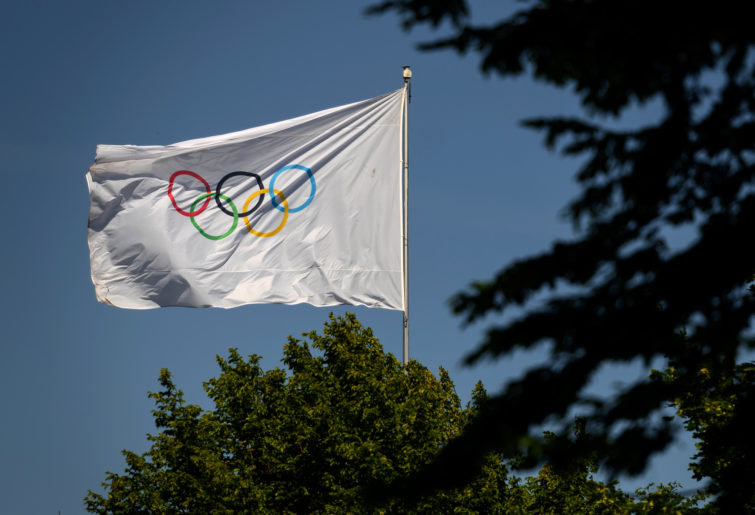
(Photo by Fabrice Coffrini/AFP via Getty Images)
At the 1992 Barcelona Olympics, I recall Linford Christie winning the 100m at the age of 32, someone who I saw training many times at Melbourne’s Olympic Park prior to the games.
But the biggest highlight of the 1992 Olympics, and one which captured the world’s attention, was the men’s long jump competition, with Carl Lewis defeating Mike Powell (8.67m to 8.64m).
At the 1991 Tokyo World Championships, in one of the greatest ever field event competitions, Powell beat Lewis (8.95m to 8.91m) and broke the Bob Beamon’s world record of 8.90m set in high altitude at the 1968 Mexico City games.
My next great Olympics memory was the 200m and 400m sprint wins by Michael Johnson at the 1996 Atlanta Olympics, including a world record 200m time of 19.32, which took 0.34 of the 19.66 world record he’d run a few months earlier.
The 2000 Sydney Olympics is also a favourite memory because it is the only games I have ever attended.
I was also fortunate to be at the 100m mark of the home straight on one of the great nights of athletics Olympics history, when Cathy Freeman won the 400m before 112,000 people shortly after Michael Johnson retained his Olympics 400m title.
To see a human break 44 seconds for the 400m was incredible. My best had been 50.4.
That same night, I witnessed one of the great Olympics 10,000m races of all time, when the defending champion Haile Gebrselassie again beat Paul Tergat in a close finish, as he did in 1996, but this time by just 0.09 seconds.
The 2000 Olympics were also memorable for the fantastic 200m freestyle clash between two male superstars, with Dutchman Pieter van den Hoogenband stunning the huge Sydney crowd by beating Ian Thorpe in a world record 1:45.35 to 1:45.83.
Thorpe had earlier won the 400m, while van den Hoogenband would later win gold in the 100m and bronze in the 50m.
I also remember Susie O’Neill winning the 200m freestyle, Australia’s first female freestyle Olympic champion since 1972, when Shane Gould won both the 200m and 400m.
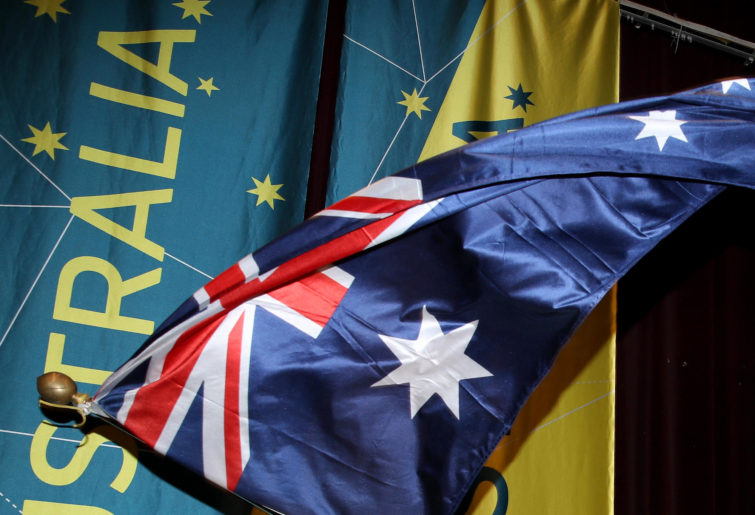
The Australian flag. (Cameron Spencer/Getty Images)
O’Neill gradually improved her freestyle swimming year by year after winning the 200m butterfly in 1996.
My primary memory of the 2004 Athens Olympics was the sad debacle of the Greek sprinters Costas Kenteris (2000 200m gold medalist) and Katerina Thanou (2000 100m silver medalist) avoiding drug tests on the eve of the games.
With testers arriving at the athletes’ village on August 11 to test Kenteris and Thanou, both fled on a motorcycle before crashing and withdrawing from the games in hospital.
It was also reported that both had missed out-of-competition drug tests in Qatar and Chicago prior to the games.
This major drug scandal showed just how unfair drug testing had become, with certain countries choosing not to adopt a serious drug testing program while others did.
The 2004 Olympics was also memorable because of Australia’s rare dominance of the track cycling with the men winning six medals (four golds) and the women two medals (one gold) from a total of 12 events across both sexes.
After years of watching track cycling, it was great to see Ryan Bayley win two golds, including the most prestigious sprint title.
Australia would also win four individual freestyle gold medals (three male and one female), led by Ian Thorpe winning the 200m and 400m, which represented Australia’s best freestyle gold medal haul since winning five individual events in 1956 and four in 1960.
As for the last three Olympics (2008, 2012 and 2016), it is three male track athletes that I remember most.
David Rushida won the 800m twice (2012 and 2016) with his first gold won in a world record time of 1:40.91.
Mo Farrah became an Olympics legend by winning the 5,000m and 10,000m double in 2012 and 2016.
Usain Bolt would also establish himself as one of the greatest ever athletes by winning the 100m-200m double in 2008, 2012 and 2016.
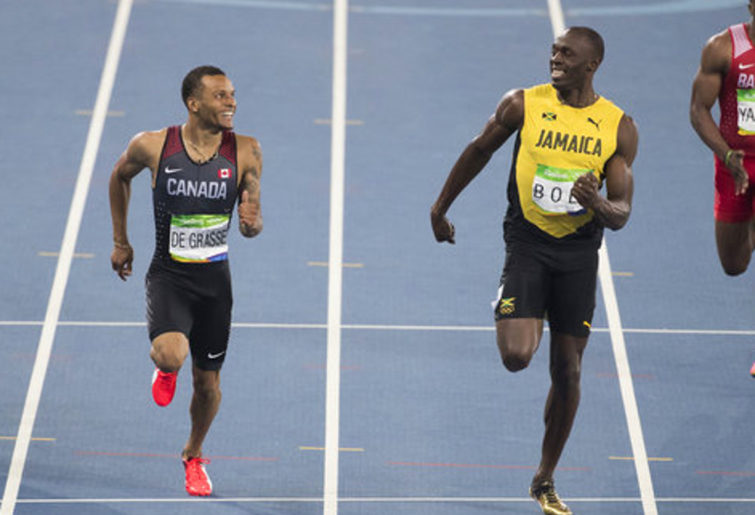
(Credit: GettyImages)
Bolt’s first 2008 100m-200m double is noteworthy for the two world records he set with times of 9.69 and 19.30.
But Bolt’s 2016 100m victory is a reminder about how exciting certain races can be when immense public interest is generated from the perception of a close race between two rivals.
With Bolt just lasting to beat Justin Gatlin by 0.01 in the 2015 100m world championship, there was considerable public interest in 2016 when Bolt beat Gatlin more easily (9.81 to 9.89), albeit the race was also sadly portrayed as a race between good and evil because of Gatlin’s past drug bans.
It remains to be seen if any of performances can offset the 2021 Tokyo Olympics being remembered most for the COVID drama given the majority of Japanese people did not want the games to go ahead.
There are a number of events that could garner considerable interest.
Shelly-Ann Fraser-Pryce seeking to become the first person to win a fourth successive Olympics track medal in the same 100m event having won gold 2008 and 2012 and bronze 2016.
Alison Felix seeking to become the first track runner to win an individual medal in five successive Olympics having won silver in 2004 (200m), silver in 2008 (200m), gold in 2012 (400m) and silver in 2016 (400m).
The 100m freestyle clash between the defending Olympics champion Kyle Chalmers and defending world champion Caleb Dressel with only 0.12 separating them at the 2019 World Championships (46.96 to 47.08).
The 400m female freestyle with Australia’s Ariarne Titmus taking on the four-time individual freestyle Olympics gold medal winner Katie Ledecky (USA).
And Lasha Talakhadze, the huge Georgian weightlifter (197cm and 176kg) who is seeking to defend his 2016 Olympic gold with the possibility of beating the all-time clean and jerk record of 266kg set in 1988 despite his current best of 264kg being the official world record given changing weight categories over the years.
We can only hope that the 2021 Tokyo Olympics is remembered for much more than the chaos caused by COVID.